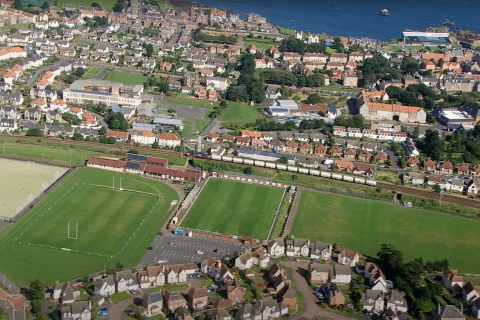Port of Rotterdam: 19 signatures for accelerated rail digitalisation

Nineteen rail freight parties have agreed to boost digitalisation and data sharing in Rotterdam’s port area and create necessary rail freight growth circumstances. “We need more efficiency, transparency, and reliability if we want more rail freight in the port”, said Matthijs van Doorn, commercial director at the Port of Rotterdam Authority.
The nineteen rail freight-related companies that signed the digitalisation agreement are Contargo, CTT Rotterdam, Danser, DB Cargo Nederland, DistriRail, European Gateway Services, Haeger & Schmidt Logistics, KombiRail Europe, LTE, Neska Intermodal, Optimodal, Portshuttle, Rail Force One, Raillogix, Rotterdam Rail Feeding, RTB Cargo, and Trimodal Europe. Deep-sea container terminals RWG and Hutchison Ports ECT Rotterdam also signed.
Governmental programme
The recently signed agreement will function under the ‘Rail Connected’ programme financed by the Dutch Ministry of Infrastructure and Water Management. The port of Rotterdam authority will have the leading role in its implementation, while the 19 signees contributed to designing the programme’s parameters.
Developing existing tools
As the port of Rotterdam explains, a large part of the ‘Rail Connected’ programme is the already used Notification Container Hinterland Barge service by Portbase. This service is a tool helping with data sharing between rail, barge and road services which get synchronised with data from the port’s deep-sea shipping terminals. As a result, it facilitates the seamless cargo flow between the port and the hinterland.
The ‘Rail Connected’ programme will last for two years. The partners will largely focus on expanding and developing the Notification Container Hinterland Barge service since they expect it to be a gamechanger and an enabler of more rail freight in the Dutch port. “This will allow the possibility of reporting trains to the terminal, for instance, and information will be available about the composition of the train,’ said Iwan van der Wolf, managing director of Portbase. “Eventually, this will help optimise the railway, the trains, and employees. It will boost rail freight traffic growth,” concluded Van Doorn.
“Positive, but first resolve basic problems”
Hans-Willem Vroon, director of lobbying organisation RailGood, thinks that a push towards further digitalisation of rail freight and the supply chain is very positive as long as the parties set the right priorities. “I am certainly in favour of digitising the basis of the rail freight chain, but that does require a supported, focused approach in which basic matters are safeguarded. Rail freight transport needs a final loading confirmation from the deep-sea terminals. It is still not delivered as inland terminals do. Timely digital provision of the loading/unloading list is also crucial”, he said.
On top of that, other problems, like infrastructure failures keeping rail freight traffic limited in parts of the network, infrastructure limitations for longer trains, disruptions in Rotterdam’s harbour line, planned constructions on international rail lines and rising rail freight costs, should be on top of the agenda of issues that should be tackled. “Then, further digitalisation will make sense”, concluded Vroon.
Also read:
-
Rotterdam’s Botlek on construction agenda, closures expected
-
New route to Rotterdam successful, but harbour line not there yet
-
Rotterdam’s Container Exchange Route delayed till end of year
You just read one of our premium articles free of charge
Want full access? Take advantage of our exclusive offer




